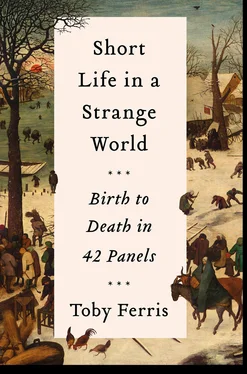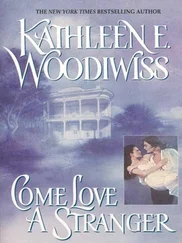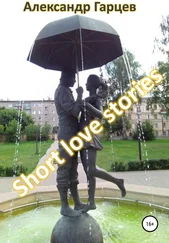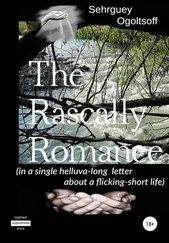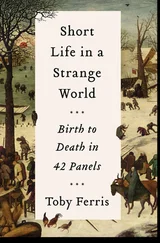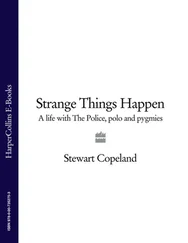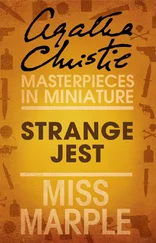His mother had died of heart disease during the war when he was a very young man. He rarely spoke about her, but on one memorable evening over whisky towards the end of his life he found he could not recall her name. The grip of my father’s memory was utterly secure until his last day. But he could not remember his mother’s name.
Later, he dredged it up from somewhere. Anne. My brother uncovered more detail, and relayed it to my father in hospital. She was recorded as Annie on the census of 1911, at nine years old the youngest of five sisters growing up on what is now Tavistock Street, just off Drury Lane. She had been born around the corner on Stanhope Street, coloured black on Charles Booth’s poverty map of the late 1880s to designate ‘Lowest Class. Vicious, semi-criminal’. Stanhope Street along with the whole rookery around Clare Market was bulldozed soon after to make way for the arterial Kingsway. No. 1 Kingsway would become, until 1963, the head office of GEC, my father’s first place of work. In 1940, during the Blitz, he would firewatch from its roof, and could have lobbed a cricket ball through the vanished window of his mother’s slum birthplace.
Years later my grandfather told my mother that his wife – Annie – had had a temper on her. Choleric. Hot blood. Hasty heart. The death of her. She died, as I say, of heart disease in 1944, aged forty-two. Years of Bruegel. My father travelled down from Scotland where he was based with Coastal Command, whether in the nick of time, to watch by her bedside as the candles flickered out, or too late, I do not know. He was an only child. He and his father were thrust together to deal with this small loss in a world undergoing incalculable loss.
My father was not obviously close to his father. Pop, as he called him, lived with us until he died when I was eight. My mother says my father rarely addressed him, never had a conversation with him. Who knows if it was trauma, or sadness, or indifference which sundered or secretly united them.
When Pop died, only my father and my mother attended his funeral. My father took Pop’s remaining possessions – a few books, razor, alarm clock, wallet and clothes – and put them in a bin bag and slung them on the municipal dump. There was to be no gravestone, no memorial rose, no bench in a park, nothing to visit.
But within the year my father sat down at the empty diary and confronted its alarming blankness.
In truth, all this biographical detail was probably less use to my father than his anecdotes, and in any case it was difficult to gauge his response – his circuit of interest had contracted to the point where all that concerned him were the minutiae of the routines that were eking out his life.
But for my brother and me it assuaged the sense that here was a disconnected dot, about whom we knew not very much, going into the darkness. There was a chain. He was linked, and so were we. It was written in the census.
People may be numberless, but they are not identical; you are defined both by your similarity to and by your discrepancy from them. So, spot the difference.
The Younger’s panel is fractionally larger – he may have been working to Antwerp rather than Brussels feet. Whatever the reason, the result is that figure groups, for which there would have been separate cartoons, are pulled this way and that within certain tolerances, marginal plays.
No two figures are dressed alike, fabrics change colour, there are odd reversals. The woman in the lower right, for example, wears a red-green combination of overskirt and underskirt inverted in the Brueghel copy. There are microscopical differences between faces, individual posture. The Younger had his own way with trees, bushy rather than twiggy.

Criss-cross tracks, paths, desire lines: The Census at Bethlehem , detail – Younger (left) and Elder (right).
And then, more slowly, I see that the Younger favours tracks. From the bottom right, where Mary has entered on her donkey or ass, to the top left across the frozen river; and again, from the wheels of the foreground frozen carts, there are criss-cross tracks, paths, desire lines, animating the space. This is a frozen world, but there is evidence of networks, organized around an axis.
The Elder’s foreground carts, by contrast, are going nowhere. There are no paths, just yellowish ice wallows. He has painted a village of spindly cartwheels, a spindly ladder against a spindly barn, spindly trees. And he has painted a world of endlessly repeated circles – the wreath, the barrels, and especially the cartwheels, thirty-one of them, including one a fraction below dead centre, hitched to no wagon and orthogonal to the viewer, as though it were not a material object at all, but a diagram of the interlocking cycles of village life and the seasons, of the great wheels of history and Christian redemption.

Hitched to no wagon: The Census at Bethlehem , detail.
And then finally I recognize what sets the two paintings apart: the Younger, perhaps seduced by those few inches in hand, has raised the branches of the largest foreground tree a fraction to reveal what in the Elder there is none of – a vanishing point, or what the Italians call a punto di fuga , a fugitive point, a point of escape. The Younger’s brown frozen river winds out of the panel. His father’s, by contrast, is entangled in the branches, perhaps coils around the back of the village, a labyrinthine waterway.
The only thing vanishing is that peculiar sun. The old world is ebbing to its conclusion.
The Younger – wittingly? unwittingly? – has made this dead cosmic circuitry bearable, transient. Along those paths and on that frozen river our eye is made to criss-cross, not circle, and finally escape the painting. And he has done all this in direct contravention of the central thought process of the original – that these circles go nowhere for a reason.

A vanishing point: The Census at Bethlehem , detail – Elder (top) and Younger (bottom)
Pieter Brueghel the Younger may not have been a painter at all. He was unarguably an eminent man in the Antwerp art world – there is a portrait etching of him by Anthony van Dyck, in which, as it happens, he projects the sort of patient melancholy common to men with drooping noses and straggling moustaches. But he may only have been the inheritor of the cartoons and the general manager of a workshop which employed anonymous hands to complete the copies. It is possible that he had no artistic personality, nothing but a signature and a locked chest of cartoons which he carefully opened and closed as required, a bureaucrat among artists, ghosting through the system, the painted artefacts. The notion that somewhere in that swirl of hands and methods and corporate production was the memory of a five-year-old boy transfixed by the death of his father is nothing more than an absurd projection of my own.
But this is why I am here. I did not come into this room in Brussels to discover a truth, but to impose one. To make something of all this. This is one way in which we react to the accumulation of life. We make spreadsheets, trace genealogies, embark on projects, write essays. We pore over the data in search of patterns. All this must and will be made to mean something.
Читать дальше
